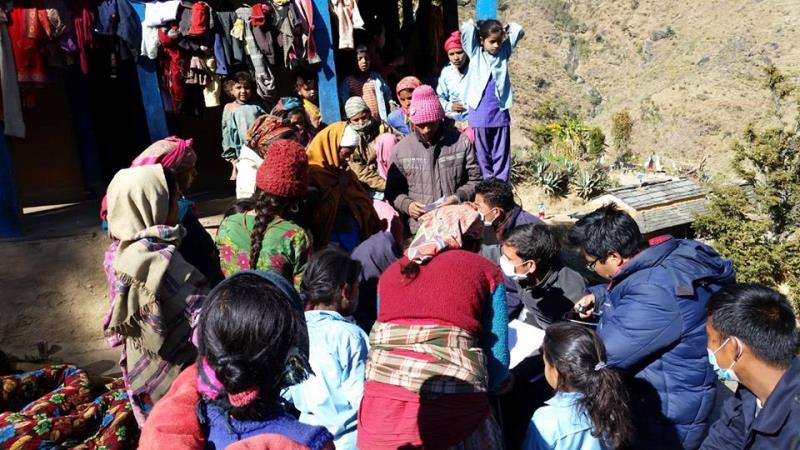Rise in the number of victims as viral fever in Jajarkot goes haywire
JAJARKOT: With the increasing number of victims of viral fever in Jajarkot, the local representatives in the villages are agitated citing lack of efforts by government authorities to contain the wide spreading disease.
The viral fever has been spreading for the past two weeks and has claimed 13 lives till date. More than 1,500 patients have been treated while hundreds more await medical help.
According to District Health Office, seven infants and six elderly citizens have fallen prey to the disease in the past two weeks. The fever, which started spreading from Junichade, Majkot ward 2 is now rapidly spreading over other areas.
A health camp set up on Saturday by the team of special physicians led by Dr Pawan Shakya has already treated 1,500 patients. However, According to Shakya, the district is seeing a rise in the number of patients everyday.
“The undernourished children, elderly citizens and the marginalised have suffered the most,” Shakya said, “Resistance to take medications as per prescription, visiting local shamans rather than doctors for treatment, poverty and lack of awareness on dealing with the disease have posed as major threats to successful treatment of the disease.”
According to Shakya, four people lost their lives after not taking medications as per the prescribed routine.
Likewise, Senior Public Health Officer Ram Bahadur Nepali has appealed the stakeholders to help in treatment of victims remarking that the district is going through a viral outbreak.
“The viral fever has gone haywire and is spreading fast over villages,” Nepali said, “preparations to add buffer stock of vaccines in Suwanauli are underway to avoid shortages.”
According to Nepali, a team of doctors from District Hospital in Jajarkot and Karnali Academy of Health Sciences have been dispatched to most affected regions and will begin treatment from Friday.
Moreover, the cause of the disease is speculated to be the H1N1 virus, however, the medical team has not been able to draw any conclusions yet.
According to Shakya, there exists a threat of imminent widespread if the disease turns out to be H1N1 seasonal flu.
As of now, blood and saliva samples of victims including those dead have been sent to Teku based laboratory in Kathmandu to pin-point the nature of the disease.






